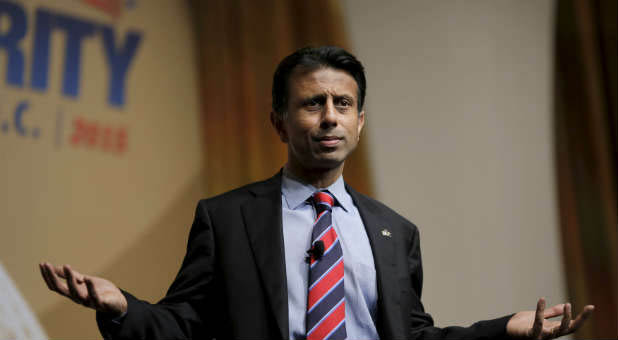President Trump has finally achieved unity and consensus in our nation’s capital. Pundits, Republican and Democrat members of Congress and the media all seem to agree that everything must stop so that we can endlessly speculate on Russia, special counsels, the FBI, the last election and criminal charges. Nonsense. Voters elected President Trump and the Republican majorities in Congress to drain the swamp, in other words, to make big and fundamental changes in the direction of our country. Let Mueller, and the appropriate Congressional committees, talk to Comey, Flynn and even Putin if they want, but in the meantime, do not let Democrats run out the clock. Our country faces too many dire challenges, thanks in large part to the Obama years, that must be addressed now. Congress is, despite its earned reputation, actually capable of walking and chewing gum at the same time. I have a radical idea—why don’t our political leaders do what they promised when they asked for our votes just a few months ago? They could start by actually repealing and replacing Obamacare.
Now that the House has finally passed its health care legislation, attention turns toward the Senate. House leadership claimed certain popular provisions could not be added, for example, allowing the sale of insurance across state lines, and other unpopular provisions could not be removed, such as, the special treatment for Members of Congress and their staff, to ensure rapid Senate approval of the House legislation. Despite these assurances and compromises, Republican Senators are now talking about writing their own legislation. While the House compromise that allows states the option to apply for a federal waiver to repeal many of Obamacare’s regulations disappointed conservatives wanting a full repeal, early indications from the Senate are their changes will be to make the legislation less and not more conservative. (Indeed, why not at least require states to apply to keep, rather than to replace, Obamacare’s regulations?)
Senate Republicans should adopt as their guideposts the conservative goals of reducing federal spending, dependence on subsidies, and government intrusion. President Obama’s unprecedented Medicaid expansion to cover millions of able bodied adults violates all three. It wasn’t that long ago when Republicans were in near unanimous agreement that reducing welfare rolls, through policies like time limits and work requirements, was a positive thing. A safety net should be provided for the neediest amongst us, but it should be temporary, targeted, and locally governed.
Senate Republicans should strengthen the House bill’s provisions by giving states even more flexibility to design and run their Medicaid programs. Multi-year federal grants for states should be tied to some measures of eligibility, but not simply to enrollment. Just as states currently benefit when they reduce their welfare rolls, they should not be rewarded for keeping people on Medicaid longer than necessary or punished for encouraging individuals to afford private coverage. States should also have the flexibility and financial incentives to design wrap-around coverage or premium assistance plans rather than one size fits all benefits packages that often crowd out private coverage. Current rules technically allow but actually discourage states from pursuing such policies. A beneficiary with employer provided or individual coverage might require targeted assistance, for example, affording prescription drugs or cost sharing, but should not have to choose between keeping their private coverage and getting help.
Just as the House bill gives states the option to manage their own individual insurance marketplaces, as they did before Obamacare, so should the Senate give states the ability to manage their own Medicaid programs. States should no longer have to come begging to Washington to design benefit packages, cost sharing provisions or eligibility requirements that meet the unique needs of their constituents. Washington can and should require accountability through overall performance measures, to ensure states are focused on improving health outcomes and not just complying with complicated rules, and special protections for the most vulnerable populations, such as the elderly and disabled.
A second conservative change would be for the Senate to transform the House’s refundable tax credit into a tax deduction. This would have to be accompanied by funding for state designed programs to assist needy individuals who do not earn enough income to pay taxes and benefit from the deduction, but at least this subsidy would be explicitly identified as spending and could thus be managed, rather than hiding a new federal entitlement program in an increasingly complicated tax code. A deduction would incentivize consumers to buy health care more efficiently, as they would keep the savings, and insurers and providers to compete to reduce costs. Independent scoring of this provision previously has shown it to be one of the more effective ways to “bend the cost curve down.”
Conservatives have waited many years to repeal and replace Obamacare. Perhaps it is too ambitious to hope the Senate improves the House legislation, rather than merely playing defense and trying to minimize the ways they will make it worse. However, President Obama himself campaigned on the promise to be transformational and not merely incremental—surely, we should aim no lower. {eoa}
See an error in this article?
To contact us or to submit an article





















